With troops and personnel of over 10,000 and a budget exceeding $500 million, UNIFIL — the 42-year-old United Nations Interim Force in Lebanon — feels unsatisfactory. The Lebanese decry the impotence of U.N. peacekeepers to stop repeated Israeli violations of Lebanon’s sovereign air space or force Israel to withdraw from Lebanese territory it occupies in northern Ghajjar. The Israelis and Americans list examples of UNIFIL’s ineffectiveness in uncovering or preventing Hezbollah provocations, most spectacularly Israel’s 2019 discovery of Hezbollah tunneling deep below the Blue Line into Israel, almost literally below the noses of the U.N.’s Blue Helmets. Despite strong and well-regarded leadership from the current UNIFIL commander, something just doesn’t feel right.
The mission is up for its annual mandate renewal before the Security Council in August. What has UNIFIL achieved, and not? What is a realistic expectation of UNIFIL under current circumstances, and how should Washington approach the renewal process?
The backstory
UNIFIL’s history can be divided into “old” UNIFIL, established in 1978 to monitor the Israeli withdrawal from southern Lebanon, and “new” UNIFIL, a pumped-up version in place since 2006, with 15,000 troops authorized, maritime assets, and an enhanced mandate. “New” UNIFIL is a direct result of the Security Council members attempting to deal with the causes of the summer 2006 war that Hezbollah provoked with Israel, in hopes of preventing recurrence.
As U.S. ambassador to Lebanon at the time, I was with Assistant Secretary of State for Near Eastern Affairs C. David Welch, then shuttling between Beirut and Jerusalem. We were in intensive discussions on August 6 and August 9, 2006 with Parliament Speaker Nabih Berri and Prime Minister Fouad Siniora on language for a Security Council draft on a cessation of hostilities and the UNIFIL mandate. At one point, David and I watched Siniora pace his office, engaging with Secretary of State Condoleezza Rice on speaker phone while Israeli planes buzzed Beirut and the air outside hung black from burning fuel tanks bombed by the Israelis.
We persuaded the Lebanese to consent to a strengthened UNIFIL mandate, and they agreed to deploy the Lebanese Armed Forces (LAF) to the south for the first time in decades. But we failed in getting Siniora or Berri to accept explicit Chapter VII authorities — which would have given UNIFIL enforcement powers. Without the Lebanese consent, the possibility of Security Council citation of Chapter VII for UNIFIL evaporated.
On August 11, 2006, Security Council members adopted Resolution 1701, calling for a cessation of all hostilities and expanding UNIFIL’s mandate and size, up to 15,000 troops. Among other things, UNIFIL was tasked to assist the LAF in establishing, between the Blue Line and the Litani River, “an area free of any armed personnel, assets and weapons other than those of the Government of Lebanon and of UNIFIL.”
The shortcomings
But this mission was always more aspirational than real. Lebanon’s government was never able to deploy the full 15,000 LAF troops (matching UNIFIL’s authorized troop levels one-to-one) that were promised in 2006. Hezbollah fighters and arms are present in the south, and UNIFIL lacks the mandate and capacity to oust them. Given this yawning gap between objectives and achievement, it is no wonder that, every year when UNIFIL’s mandate comes up for renewal at the U.N. Security Council, Washington tries to further strengthen its mandate while also questioning the $500 million annual costs, for which the U.S. assessed share is about 27%. (Overall, the U.S. is currently $1 billion in arrears in assessed contributions to the U.N., a fact tabled by the Chinese and others in any discussion of budget cuts).
In the August 2019 mandate renewal, Washington inserted language demanding that the U.N. secretary-general report on UNIFIL’s effectiveness. The report, issued June 1, is a bracing read, an uncharacteristically clear document of UNIFIL struggling against local farmers, villagers, so-called environmental activists, and so forth — all undoubtedly connected to Hezbollah. The report also leaves one with a sense of hopelessness about LAF deployment to the south, given Lebanon’s financial implosion preventing additional recruitment and the need for the LAF to help with civil unrest as well as terrorism and security threats elsewhere in the country.
The parts of the secretary-general’s report describing UNIFIL’s real effectiveness, such as its leadership of essential tripartite coordination and de-confliction between the Israelis and Lebanese (who do not communicate bilaterally) do not lead one to conclude that 10,000 troops currently deployed are needed. UNIFIL’s worthwhile local development and humanitarian activities to build good will in the south could presumably be assumed by other parts of the United Nations, were funding available.
What’s realistic now?
So it’s legitimate for American policymakers to ask whether UNIFIL is still worth the investment. Does UNIFIL really play a role in stabilizing the south and discouraging Lebanese-Israeli clashes? The Lebanese government’s official position is apparently yes, as Beirut has officially requested mandate renewal. My guess is that Israelis have mixed feelings, but any change to the status quo could easily lead to escalation or confrontation between Israel and Hezbollah.
In my own view, the answers should derive from what is realistic and what we really want from UNIFIL. Just as stopping Israel’s violations of Lebanon’s air space is beyond UNIFIL’s abilities, physically disarming Hezbollah was never going to make it into a mandate. Nor, for that matter, would troop-contributing countries sign up for the inevitable confrontations that would result from forcible disarmament.
Preventing weapons smuggling was fudged in the Resolution 1701 mandate, as UNIFIL was requested to assist the Lebanese government “at its request” to secure Lebanon’s borders and prevent the infiltration of arms. No surprise: Lebanon has never requested such support and, especially under the current Hezbollah-backed cabinet, is unlikely to reconsider unless Security Council members would insist (which takes us back to the Chapter VII argument). So Iran and Hezbollah continue the arms smuggling via Syria, constrained only by Israeli cross-border operations into Syria (often via violations of Lebanese air space) and Russian willingness to overlook them. And as we see in examples listed in the secretary-general’s report and demonstrated by Israel’s 2019 tunnel discovery, Hezbollah is not immobilized in, or expelled from, the south.
Then there is the weapons-free zone that was supposed to have been established between the Blue Line and the Litani River. Too many prior UNIFIL reports with ambiguous, tortured language suggested that UNIFIL takes a “see no evil, hear no evil, speak no evil” approach to potential weapons depots. But the sad reality is that Hezbollah is no longer dependent on arms in the south. By all reports, Hezbollah has stockpiles of sophisticated long-range rockets and other armaments north of the Litani — beyond UNIFIL’s area of operations. Hezbollah arms, wherever they are, ultimately put Lebanon at risk of Israeli attacks (and are the immediate cause of the hated overflights), but a weapons-free zone south of the Litani doesn’t matter as much today as it did in 2006. One could argue, in fact, that the Resolution 1701 language ended up being counterproductive, since Hezbollah disbursed its weaponry all over Lebanon rather than concentrating the arms in the south.
 Source: 99of9/Wikimedia Commons CC BY-SA 2.5
Source: 99of9/Wikimedia Commons CC BY-SA 2.5
UNIFIL’s value in constraining Hezbollah comes down to its size. Through sheer numbers, it essentially saturates the south. Even if it can evade UNIFIL scrutiny at times, as the tunnels show, Hezbollah does not have the almost complete freedom of movement in the south that it enjoyed under “old” UNIFIL. It is hard to imagine Hezbollah today managing to pull off the type of sophisticated cross-border kidnapping in Israel that triggered the July 2006 war. Hezbollah mortar strikes across the Blue Line or into the disputed territory of Shebaa’ Farms, which before 2006 were a regular occurrence (and could always have unleashed a larger conflict), are now rare. The steady pace of UNIFIL patrols surely forces Hezbollah to dial back its own ambitions for the south. Imagine how much easier it would be for Hezbollah to infiltrate all corners of the south, were UNIFIL not present. Admittedly, if this is stability, it is fragile stability. But less room for Hezbollah to maneuver means less chance of provocations or miscalculations that could provoke the next war.
The steady pace of UNIFIL patrols surely forces Hezbollah to dial back its own ambitions for the south.
What Washington should do
As the mandate renewal debate approaches, a sensible approach for the U.S. would be to draw from the useful and practical recommendations in the secretary-general’s report and insist on accelerating their implementation. The report notes the potential use of higher-tech monitoring, including the use of (unarmed) drones to monitor areas now effectively off-limits to ground patrols, including so-called agricultural areas and environmental zones. Lighter vehicles and smaller patrols would make it harder for Hezbollah-aligned villagers to block patrols on the pretext that the heavy vehicles now in use destroy infrastructure. Consolidating bases and new observation points to take into account changed circumstances on the ground (such as Israeli t-wall construction blocking views) could improve UNIFIL’s performance. The list goes on. These are the steps that, once implemented, could allow UNIFIL’s troop numbers to decrease, even as UNIFIL’s situational awareness would increase.
None of these proposed changes require adjusting UNIFIL’s mandate. But, if the mandate is simply rolled over (as the Lebanese have requested, and as other Security Council members would be inclined to do), the odds are high — given the usual bureaucratic inertia and financial constraints — that UNIFIL’s operations at the time of the 2021 mandate renewal will leave us with the same unsatisfactory feeling as today. New capabilities will not happen without pressure and attention.
New capabilities will not happen without pressure and attention.
The size of UNIFIL is its strength but also explains the cost. Rather than debate Security Council members now over troop numbers or costs, Washington could consider tabling a proposal by which the current mandate is rolled over without significant change — but for a limited period of perhaps six or eight months rather than a full year. Linking implementation of the secretary-general’s recommendations and future mandate renewals would exert pressure on UNIFIL to move forward more quickly than UN activities usually do. Last year’s mandate renewal tasked the secretary-general to produce the recommendations in his June 1 report. This year’s renewal could ask him to issue a progress report within three months on steps taken so far and a detailed schedule on future steps for full implementation.
The accelerated debate on mandate renewal will also put pressure on the Lebanese government not to block the deployment of new technology, if the Lebanese understand that continuation of the status quo will lead to UNIFIL’s liquidation. Once the high-tech surveillance and other changes are incorporated into UNIFIL operations, giving UNIFIL situational awareness via technology, future mandate renewals could then consider reducing the troop levels and the half-billion-dollar annual price tag. (Just as I’m assuming the secretary-general’s UNIFIL recommendations were made in good faith and not simply to placate the Americans, I’m assuming that Washington’s questions about UNIFIL’s effectiveness are sincere and not just linked to budget-cutting.)
A bigger challenge for the mandate renewal discussion is how to pressure the Lebanese politically into taking Resolution 1701 obligations seriously. One cannot blame the LAF for the lack of deployment to the south. Under successive governments in Beirut, the LAF has not been given the political direction (and cover) or financial backing to do so. Perhaps, despite the discouraging prospects for LAF deployment in the secretary-general’s report and Lebanon’s current crises, the Security Council could demand that UNIFIL develop with Beirut a specific plan, resource-requirement list, and schedule to fulfill at last the commitment of a large-scale LAF deployment to the south.
It is worth remembering that Resolution 1701 does not just place responsibilities on the Lebanese, but also on the Israelis. As I often try to point out to Lebanese interlocutors, Hezbollah, in its arms smuggling, creates the threat that provokes the Israeli air violations that Hezbollah then uses to justify its arms. But, yes, UNIFIL also needs to continue monitoring and reporting Israel’s air violations (including bombing runs into Syria) and its northern Ghajjar occupation as Resolution 1701 violations, which they are. A concerted push now from Washington to bolster UNIFIL’s effectiveness while holding the U.N. accountable for implementing what the secretary-general has proposed could help reduce violations by all the parties — that would indeed be worth the investment.
The Brookings Institution is committed to quality, independence, and impact.
We are supported by a diverse array of funders. In line with our values and policies, each Brookings publication represents the sole views of its author(s).

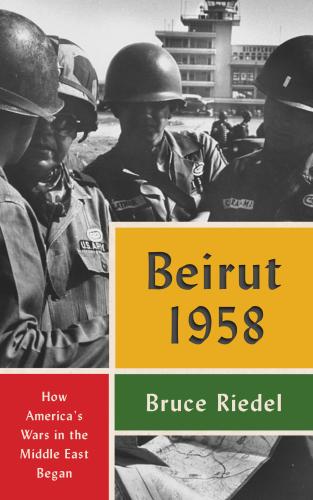
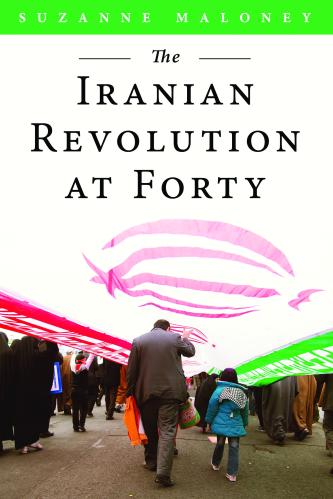
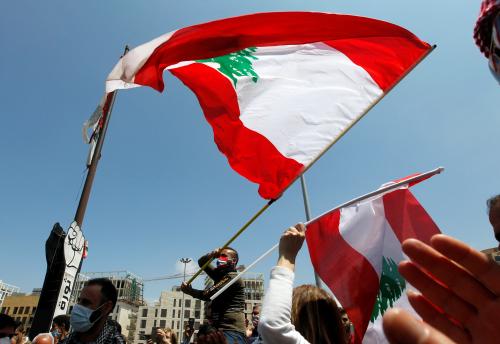
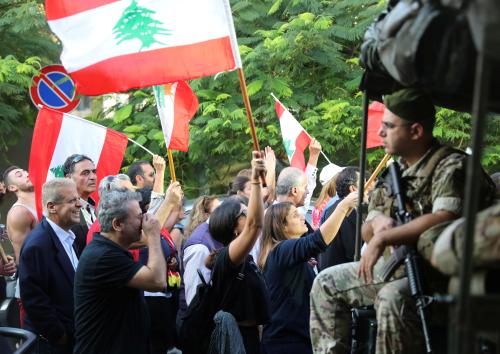
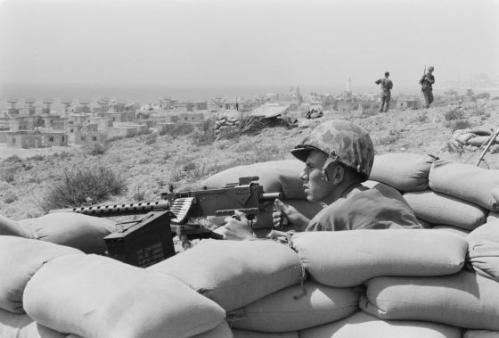

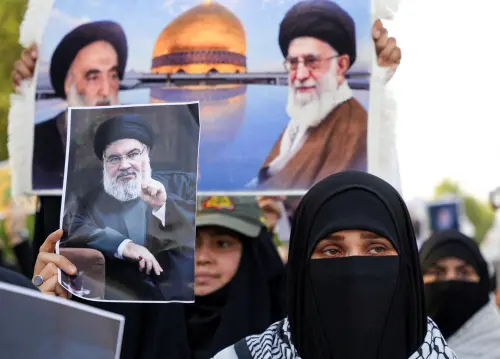
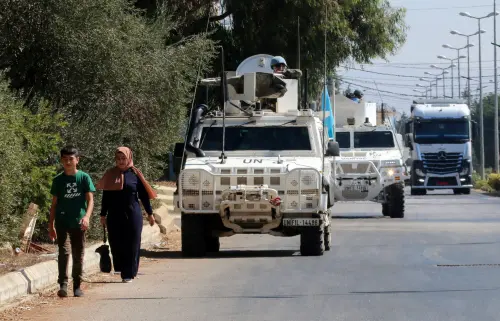
Commentary
Debating UN peacekeeping in Lebanon
June 15, 2020